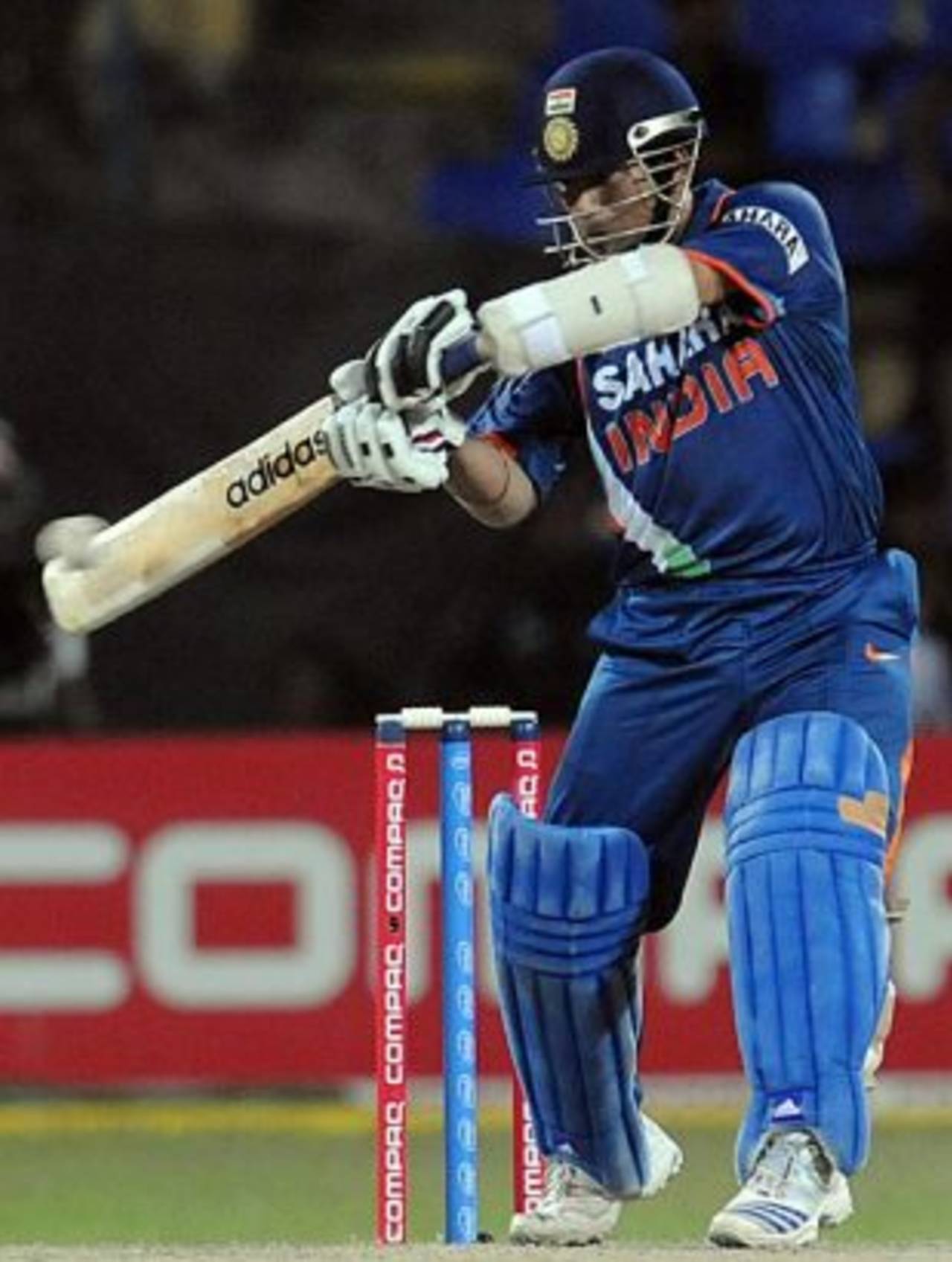If reasons are to be found to not look at this as just another seven-match ODI series, meaningless but for the No. 1 spot in the dubious ICC rankings on the line, don't look beyond the leading run-getters of both teams. They are also two of the greatest batsmen of our era, and definitely two most consistent across the two forms that they have played for most of their careers. If the marketing man had had the time to build this series up, there wouldn't be a better peg.
Sachin Tendulkar and
Ricky Ponting, aged 36 and 34 respectively, have rejuvenated themselves enough to be back at the top of their games, in different ways. Not that the dips were long, but there have been stifled, sporadic calls for them to quit at least one form of the game, if not both. For players who have played so well for so long, motivation is not likely to be an issue, but it is also conspicuous they now derive joy from different aspects of their games.
Tendulkar has been remarkable for not living in denial. He realised long before the rest of the world did that he needed to change his game. He respected age. He stopped making jaws drop, and instead began to appeal to the wise heads that will admire a swallowed ego and a more complete batsman. For about a couple of years we found it hard to reconcile the consciously cautious man of this decade with the terror that bowlers knew in the one before. As with all rediscoveries, this took some time, and once the new Tendulkar started scoring consistently again, we began to marvel. Genius had worked, and we didn't even realise.
Since the start of the year 2008, Tendulkar has averaged 47.05 (career average 44.48) and struck at 90.22 per 100 balls (career strike-rate 85.74). That he has played just 23 matches over the period shows he has picked and chosen. It's a conscious effort to stay fit and ready till the 2011 World Cup, something that can't be easy for a man who has played through pain for most of his career. But he wants another shot at the World Cup, missing which might cause him more mental pain than the physical pain he has endured. And when it comes to the next biggest challenge, playing Ponting's men, it is natural he play.
Australia, though, don't evoke the awe they used to or the aura they used to carry. Ponting's has been a bittersweet experience of captaining the side: two Ashes losses in themselves would have been reason enough for capital punishment for an Australian captain in an era gone by. A first-round exit in the 2009 World Twenty20 goes with it. But Ponting and the Australian board realise that perhaps their team has to spend time rediscovering itself, much like Tendulkar has done with his game. It shows in how they don't talk big before the big series; winning has become the new talking.
Although Ponting may not figure in the list of greatest captains from Australia, his team, like Tendulkar's game, has maintained a certain level of efficiency. But Ponting needed to do more than chew nails, spit in his hands, look frustrated on the field and get frustrated on the field, and that need to express himself has manifested itself best in his batting. It is remarkable that captaining a side that has fallen from the lofty Australian standards of years gone by has not had any conspicuous effect on his batting. Perhaps it has contributed to him taking it a notch higher. The batting crease is the only place he can carry his brashness to. Frankly, what would the best hooker and puller in the world be without that last ounce of brashness?
Can Ponting bring that quality to a country that hasn't been kind to his batting, with the added burden of leading an inexperienced line-up? For once he will get to put himself in Tendulkar's shoes. In the 46 ODIs that these men have played against each other, Ponting has been on the winning side 28 times. In those 28 games, his average has risen from a career 43.16 to 52.6, an expected variation. But in the 15 games that Tendulkar has won, he has had to raise his game to an extent where his average goes from a career 44.48 to 84.28.
Roles have changed slightly now. Tendulkar has Virender Sehwag, Gautam Gambhir, Yuvraj Singh and MS Dhoni around him; Ponting makes his way in after an unsettled opening combination, and is followed by Michael Hussey, Cameron White and James Hopes.
Even at their ages, and despite the presence of young dashers, these two men make for the most intriguing contest of the series. What's more, Ponting has to lead a somewhat unfancied batting line-up in this series. It's a combination that sometimes manages to get the worst out of them, and might just provide one of the separators in the Greatest of Our Time debate.
Sidharth Monga is a staff writer at Cricinfo
